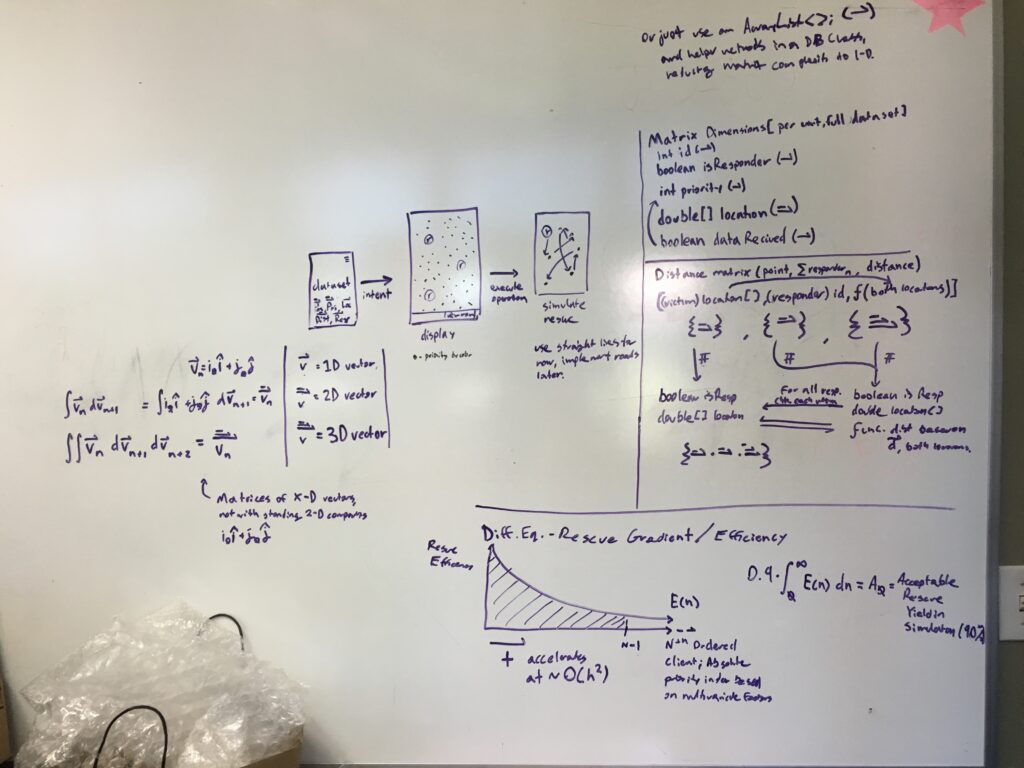Last Friday, 190 Members of the U.S. House of Representatives announced the winners of the 2017 Congressional App Challenge. Over the last four months, thousands of students coded original apps as part of district-wide competitions hosted by Members of the House.
 The Congressional App Challenge aims to engage students in coding and computer science. In all, 190 Congressional districts across 42 states hosted app challenges for their student constituents. Congressional participation was widespread and remarkably bipartisan.
The Congressional App Challenge aims to engage students in coding and computer science. In all, 190 Congressional districts across 42 states hosted app challenges for their student constituents. Congressional participation was widespread and remarkably bipartisan.
The office of Representative Scott Peters is happy to announce California’s 52nd Congressional District winner to be the Rescue app created by Padraig MacGabann. Padraig currently attends Coronado High School in Coronado, California. He is a Boy Scout and a member of Project Lead the Way. Padraig created this app to make text-to-911 more efficient, and make proofs-of-concept for automated emergency dispatch and location tracking during internet failure because the current emergency response system often fails during natural disasters. “Time is precious in a disaster, so automating parts of the process would save many lives,” Padraig suggested.
Over 4,100 students participated in the 14-week regional competitions. They submitted over 1,270 original student-created apps, a 96% growth in the number of apps from last year’s Challenge. The rest of the winners are listed online at CongressionalAppChallenge.us. Follow on Facebook and Twitter to view the announcements of winners from each Member of Congress.
The Congressional App Challenge will invite winners from across the country to showcase their apps to the Members of Congress and members of the tech community at #HouseOfCode, a reception on Capitol Hill to be held in April 2018. Their work is eligible to be featured for one year on the permanent display in the U.S. Capitol Building and on the House.gov website. Each winning student will also be awarded $250 in Amazon Web Service credits, generously donated by Amazon Web Services.
Congratulations to all the students who participated!
About the Congressional App Challenge
The CAC is an official initiative of the U.S. House of Representatives, managed by the Internet Education Foundation, a 501(c)(3) non-profit organization. The first three years of the program yielded 426 challenges across 42 states. Over 2,400 apps were created by nearly 8,000 students, and participant demographics surpassed the tech industry’s best gender, racial and geographic diversity metrics.
The 2017 Congressional App Challenge is possible thanks to the generous support of our sponsors: Capital One, Microsoft, Democracy Fund, Verizon Foundation, Amazon Web Services, the United Parcel Service, BSA (Business Software Alliance) Foundation, CA Technologies, Cognizant and the Copyright Alliance. The Challenge also owes gratitude to Representatives Bob Goodlatte and Anna G. Eshoo, co-chairs of the Congressional Internet Caucus, who requested and supported the creation of the CAC. Additionally, thank you to Representatives Illeana Ros-Lehtinen and Tim Ryan for serving as 2017 App Challenge Co-chairs.
________________________________________________________________________
Padraig MacGabann is an aspiring and self-taught computer scientist at Coronado High School. Learning different software from Java to XML, he also took several classes at Stanford University last summer regarding coding. The first of these classes involved calculus applications for coding engineers, in which he used MATLAB–a computer programming language. The second class was a client-side internet technologies course that is used to prepare students for an entry-level development job in coding.
All of this course content went into the development of Rescue. “While I didn’t directly use any of the coding languages I used at Stanford, the math class helped me develop the dispatch algorithm,” says MacGabann.
As classes were back in session at Coronado High School in August, MacGabann was informed about the Congressional App Challenge from his engineering teacher Patricia Samora. Although he was entering a month late and endeavored to develop the app on a one-man team, MacGabann managed to complete the task with the one-month window he had. “The process was first planning out what the app should do, what levels of complexity I could achieve in the one month I had left to finish the app, and figuring out what skills I had to learn,” explains MacGabann.

He was first inspired by the disasters in Houston caused by Hurricane Harvey. As many people were rescued using the map feature on the social media app Snapchat, MacGabann thought that less time would be wasted if “Search and Rescue” units would have easy access to the locations of those in danger. Phones tended to be a primary locator, so MacGabann has thought to use a third-party tracker available to emergency services in times of disaster.
Once the premise of the app was established, the development of the app took place. There were various parts of the app that needed to build through modules, which are interrelated units that are part of a single program. These modules included templates for 911 prompts, medical ID interface, location, automated dispatch, and SMS communication. All of these were tested separately and stitched together at the end using Android Studio.
After the finishing touches were placed, MacGabann submitted his app to the 52nd Congressional District, which was reviewed by the district representative Scott Peters. His app was then announced to be the winner of the district and he will be attending the winners’ reception in April in Washington D.C.
As an aspiring coder, Padraig is applying to Stanford University’s computer science program. After he graduates, he wishes to work as a software developer at a large corporation like Google or Facebook to get experience in this industry. Ambitiously, this will lead to the founding of his own company someday.
We wish him luck in all of his endeavors in this field.





